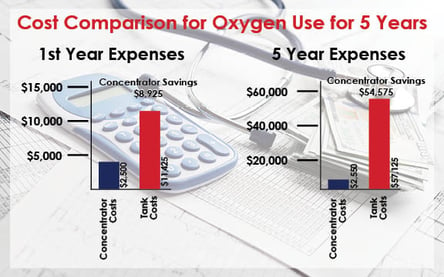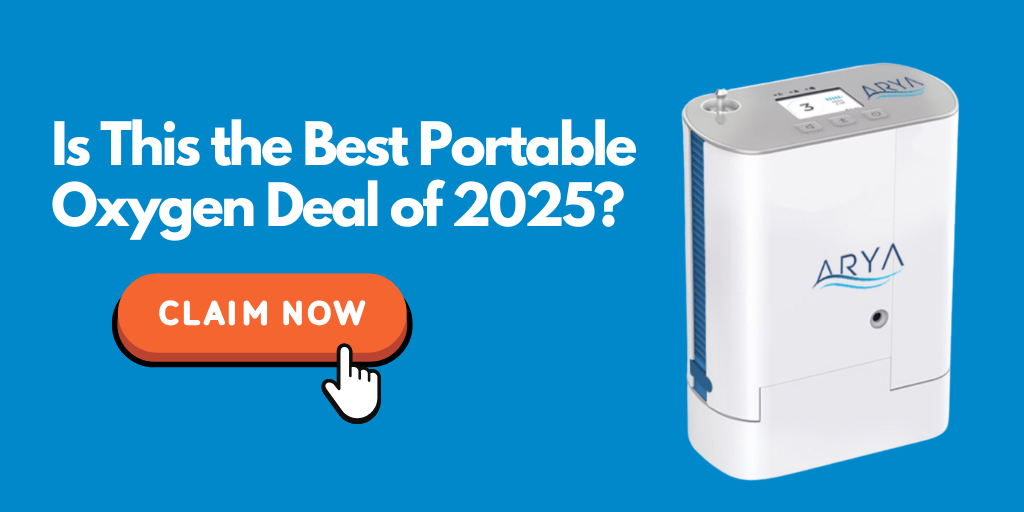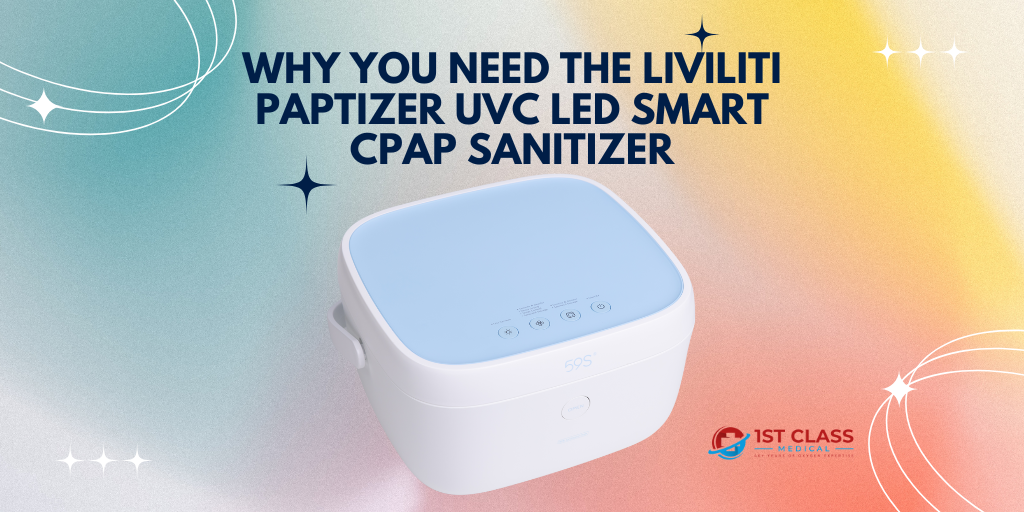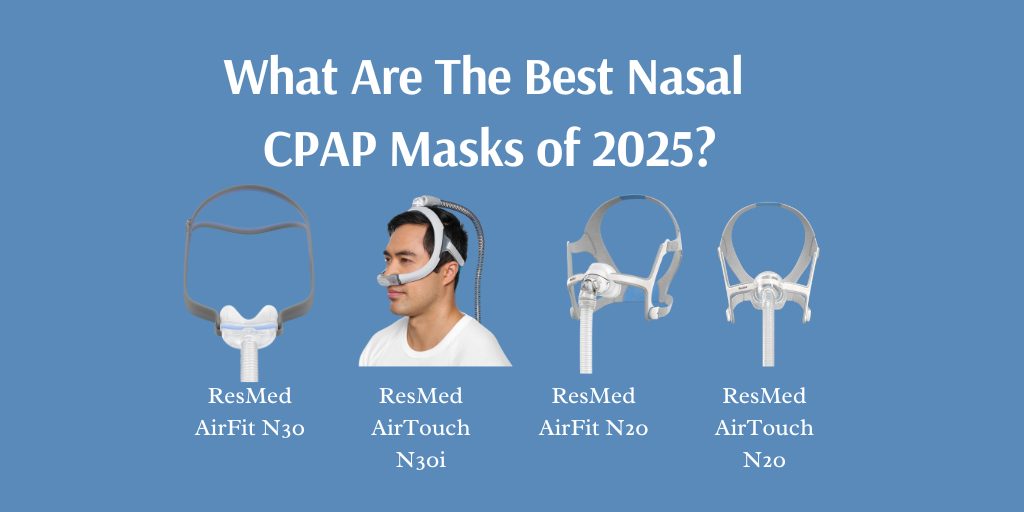When is Oxygen Covered?
Under Medicare Part B patients can be supplied the rental of oxygen equipment and accessories of what is known as DME, or Durable Medical Equipment. To be covered the patient must meet certain conditions.
- You have been diagnosed with a severe lung disease
- Your oxygen levels are regularly depleted
- Arterial blood gas levels are within a certain range
- There are no alternative treatments
Application Process
Once it is determined that you are eligible to get oxygen equipment the doctor will issue what is called a Detailed Written Order which should include:
what is called a Detailed Written Order which should include:
- The patient’s name
- A detailed list of items required, including: means of oxygen delivery, flow rates, continuous or pulse requirements, and length of need
- Physician’s dated signature
- Start date of the order
What’s Covered?
If you meet the above conditions Medicare will pay for portions of certain expenses.
- Oxygen delivery systems
- Oxygen storage containers
- Tubing and other oxygen related supplies
- Humidifiers to be used with oxygen equipment in certain cases
Common Reasons Claims Get Denied
As with all government paperwork there is a lot of red tape with very strict guidelines. The difference between approval and denial could come down to a paperwork error. Once rejected you have to start again at the beginning so look over this list of common reasons for denial to ensure you don’t fall into these pitfalls.
- Missing blood gas or saturation test results
- Missing or incomplete detailed doctor’s order
- Missing nobility certification indicating the patient is mobile within the home
- Missing or outdated certificate of medical necessity
- Missing prescription for medical oxygen
- Missing oxygen need certification from a physician with required time frames
- Oxygen need must be 24/7, not only nighttime use
Improving Your Chances of Getting A Portable Oxygen Concentrator
If you have just been prescribed oxygen and haven’t been on any kind of medical oxygen before, this may be your best chance to get a portable covered by insurance or Medicare. If you can advocate that a concentrator is absolutely necessary to continue your work or some for some other reason and that the portable will be your main, or only, source of oxygen, you may get approved.
Many times people get prescribed oxygen they are not sure that it’s going to be permanent so they just accept the tanks given to them. If you’ve never had to live 24/7 with tanks, you may not understand how cumbersome and inconvenient they are. Once you've been using tanks for several months, it it hard to convince Medicare to make the switch and convince them that you need a concentrator.
Competitive Bidding Program
With the advent of new health care laws, Medicare instituted a Competitive Bidding Program. With this new program Medicare will help pay for oxygen equipment supplied by contract suppliers. These approved suppliers will not be able to charge you more than 20% coinsurance and any unmet deductible. Suppliers will be subject to screening to see that they meet quality, eligibility, financial, and accreditation standards. This program is available in most larger markets.
Filed All the Paperwork, Now What?
Now the waiting begins as your paperwork is processed. Once it's gone through, most oxygen patients will begin a 36 month contract with an oxygen supplier who will deliver tanks and provide refill services. If you live in the area where the competitive bidding program is in effect you will begin the process with a list of approved providers. This supplier is required to supply you with oxygen and supplies for up to 24 months past the 36 month initial contract for a total of 5 years.
oxygen patients will begin a 36 month contract with an oxygen supplier who will deliver tanks and provide refill services. If you live in the area where the competitive bidding program is in effect you will begin the process with a list of approved providers. This supplier is required to supply you with oxygen and supplies for up to 24 months past the 36 month initial contract for a total of 5 years.
Why Tanks over Concentrators?
Oxygen tanks are the most common items provided for oxygen patients. This is frustrating because we all know that the goal of Medicare and private insurance companies is to provide care at the lowest possible price. It has been well documented that oxygen patients who use concentrators enjoy a better quality of life as well as better overall health as a result of being more active and possessing a more positive mental outlook. This should lower overall care costs in general. Insurance providers provide tanks even though many of their approved providers also rent concentrators.
Cost is a large part of the reason but tanks are also something that oxygen patients across the board can utilize for their medical oxygen needs whether you are on a low pulse dose or if you require 5 LPM of continuous oxygen, or more. To date concentrators can be used by pulse dose patients or those up to 3 LPM continuous. The medical part is true but the cost savings is not necessarily valid. It's true the initial investment is less with tanks but lets look at the costs over the 5 year service time.


As you can see, it would't take very long for purchasing patient's concentrators instead of tanks to pay for itself.
If just 1 patient was provided a concentrator the savings of that single patient could pay for concentrators for 3 other patients.
Over 5 years more than 20 additional patients could have concentrators for the savings of a single patient on an oxygen concentrator with each of those patients also saving exponentially.
100 patients can can save almost $900,000 or provide concentrators for more than 350 additional patients which will in turn save exponentially.
1st Class Medical's Advocacy
We have presented these figures to many insurance companies and government organizations. As many of you know we are an authorized oxygen provider the the Veterans Administration. We have been working for years with getting veterans switched over from cumbersome tanks, to more efficient concentrators.
We have scheduled meetings, written letters, made phone calls, and will continue to do so. We are often invited to speak an government conventions and recently went to the Center for Disease Control Conference on Tobacco and Health. We partnered with the family of Leonard Nimoy to make a film documenting not only the actor's storied career, but also his battle against COPD.
As the world's largest distributor of portable oxygen concentrators we do have a certain amount of influence, however, they do know that we do have something to gain by increasing the use of concentrators among oxygen patients. For this reason your voices will be heard much louder than ours.
Wielding Your Influence
 No one understands the life of hauling around tanks or the disappointment of having to miss a family event because tanks are not allowed on planes, like the oxygen patient themselves. Hearing your personal story will have much more of an impact than that of a company that may be perceived as pushing their merchandise. Sometimes apathy can set in and disappointment in government and their influence by lobbyists and their money can make it seem impossible to sway the opinions of your legislators. But in this turbulent year, voter demonstrations and push back have turned the tide on many issues. Elected officials work for us and without our support, they're out of a job.
No one understands the life of hauling around tanks or the disappointment of having to miss a family event because tanks are not allowed on planes, like the oxygen patient themselves. Hearing your personal story will have much more of an impact than that of a company that may be perceived as pushing their merchandise. Sometimes apathy can set in and disappointment in government and their influence by lobbyists and their money can make it seem impossible to sway the opinions of your legislators. But in this turbulent year, voter demonstrations and push back have turned the tide on many issues. Elected officials work for us and without our support, they're out of a job.
We encourage you to contact your representatives. Present them with the financial facts and share your story with them.
Call and Write to:
- Your representative
- Your senator
- Speak to your state lawmakers
- Contact your governor
- These steps can be especially influential if your senator is on the Board of Health, Education, Labor, and Pensions
- Speak to your own insurance company, go up the chain as far as you can.
- Also contact the National Association of Insurance Commissioners
Letter Writing Hints
Keep in mind that politicians receive hundreds, if not thousands of letters. These tips will make your's more effective and likely to warrant more consideration.
- Keep it short, one page is best
- State any professional medical credentials you might have or if you are a patient or caregiver
- Tell them what area you live in as part of their district
- Clearly layout any facts. Feel free to use the financial info we compiled or numbers from your personal situation.
- Don't be afraid to share your personal story.
- Conclude by stating what action you feel should be taken. Stay constructive.
- Thank them for their consideration.
- Follow up with additional information and make it clear you plan on following any progress or lack there of.








